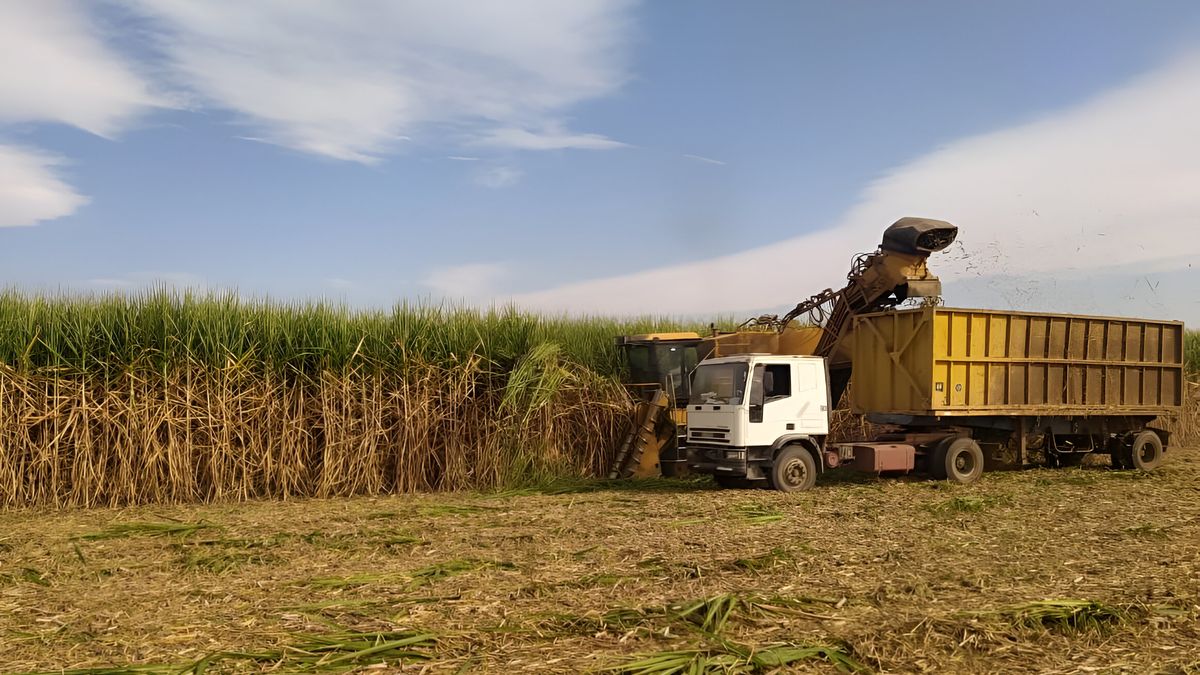He sugar sector in the north of the country monitors the appearance in the City of Buenos Aires of sugar from Brazil in a supermarket chain store, since its generalization could threaten an industry of great weight in the economic activity of Tucuman, Jujuy and Salta. The news came at the start of the week. “It is probably a one-off event and is inexplicable because there is no economic justification,” Jorge Feijoó, president of the Argentine Sugar Center (CAA), told Ámbito.
The entity is made up of entrepreneurs from 20 sugar mills: 15 from Tucumán, three from Jujuy and two from Salta. It also represents 16 alcohol distilleries, 12 alcohol dehydrators; 7,100 independent sugarcane producers -6,200 of them with farms of less than 50 hectares- and 160 metalworking service industries. In terms of job creation, The sector directly employs 61,000 workersincluded in the entire chain. That is to say, any alteration in the marketing could generate shocks and their negative counterpart as a consequence.
The sugar packets detected are from the brand Unioncommon type A and one kilo, whose value to the public is $1,080, in a COTO sales outlet, on Viamonte 1500, in CABA, indicated the source that shared the image with this media.
Brazilian sugar
In dialogue with Ambito, Feijoó estimated that the presence of the product is incomprehensible and “it is absurd for the country’s trade balance, for the consumer and the sugar sector.” He explained that the country produces twice the amount of sugar consumed in the domestic market. “So much so that this year 500,000 tons will be exported that will bring in foreign currency to the country. What would be the point of importing sugar? There is no reason to squander foreign currency to import sugar. In addition, the product in the domestic market is cheaper, so there are businessmen from Brazil itself who are looking to buy Tucuman’s production,” he said. A kilo of Argentine sugar costs around $1,000.
In relation to whether the Argentine Sugar Center In an attempt to find out the origin of the import, Feijoó said that “there were no sugar imports registered in the Foreign Trade information system” and the supermarket does not offer it on its website either. “It is probably a one-off event,” he said. However, it was noted that the situation will be closely monitored.
“For now, these are isolated cases”
Tucuman It has an autonomous entity in which all the actors that influence the sugar activity are represented, which is the Tucumán Sugar and Alcohol Promotion Institute (IPAAT). About this situation, Jorge Etchandy, its managerreported that at the request of the provincial government, the Secretariat of Foreign Trade of the Nation was consulted about the importation of sugar. “They told us that as of Wednesday 18th there was no record of entry,” he said. “We took note and evaluated it, but for now these are isolated cases,” he added.
He recalled that at the beginning of the year there was an idea of opening sugar imports but “the Tucuman government made all the arrangements with the Nation and thus managed to ensure that the law that allowed the unrestricted entry of sugar from any destination, outside of Argentina, especially from Brazil, which is a great competitor, was not modified.” “Argentina has been exporting sugar to different places in the world uninterruptedly. And this year we hope to end up exporting a historic volume,” he stressed. To give an idea of the Tucuman product, he highlighted that more than 65% of the sugar consumed in the country is from this province.
This week the Minister of Economy of the province, Daniel Abadwho indicated that the Executive Branch was unable to obtain official data on sugar imports from Brazil. “We assume that it is a private matter, which is not at all clear. It is unlikely that an import transaction would be made to lose money. And if it were a contraband entry, it would be a very crude illegal operation,” he said.
One of the main features of the Brazil’s sugar-alcohol production The problem is that it revolves around the production of ethanol due to its powerful automotive industry that runs on this fuel. In other words, sugar is a secondary product that, although it is competitive in terms of the value of its market, is of lower quality than the local one, said a producer consulted.
Source: Ambito
I am a 24-year-old writer and journalist who has been working in the news industry for the past two years. I write primarily about market news, so if you’re looking for insights into what’s going on in the stock market or economic indicators, you’ve come to the right place. I also dabble in writing articles on lifestyle trends and pop culture news.




